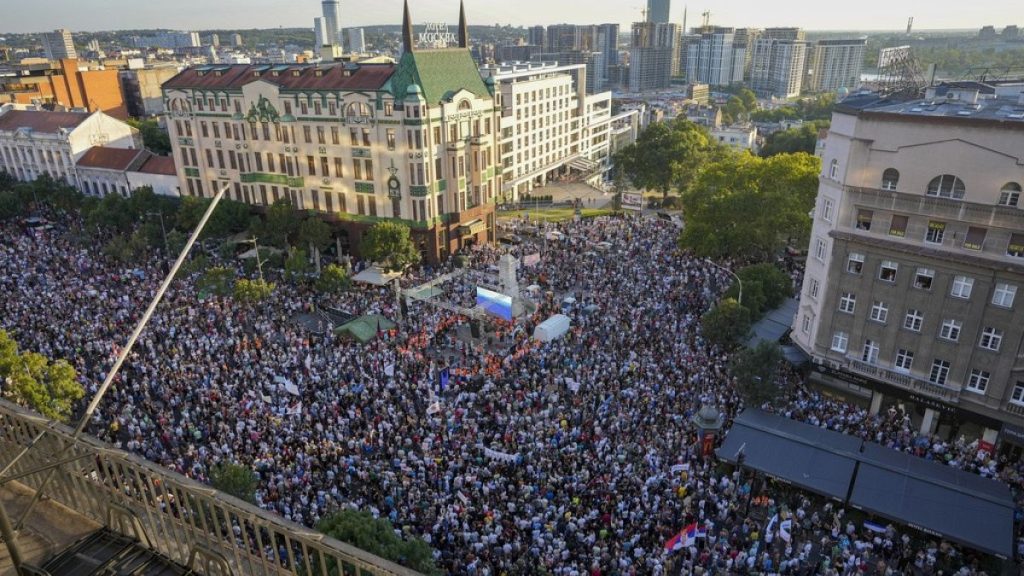The European Commission is maintaining its commitment to a strategic partnership with Serbia on raw materials, despite recent protests in the country. The protests were sparked by President Aleksandar Vučić’s claims that western powers were behind opposition to a proposed lithium mine in Serbia. The Commission, led by Vice-President Maroš Šefčovič, signed a memorandum of understanding with Serbia to reduce dependence on China for essential raw materials, such as those needed for electric car batteries. This partnership is part of the Clean Industrial Deal, a key policy agenda for Commission President Ursula von der Leyen’s second mandate, aimed at securing access to affordable raw materials while upholding environmental standards compatible with EU law.
The environmental impact of Anglo-Australian mining corporation Rio Tinto’s proposed lithium mine in Serbia has sparked widespread protests from environmentalists and local opponents who fear the project will bring little benefit to the Serbian people. These concerns culminated in tens of thousands of protesters marching in the capital and smaller groups blocking railway lines. President Vučić accused unnamed western powers of inciting protests against his government, claiming that Russian intelligence services had warned him of potential unrest. However, the European Commission has rejected these allegations of foreign interference, emphasizing its stance on upholding legal and ethical standards in its partnerships with other countries.
EU leaders, including Emmanuel Macron and Ursula von der Leyen, are closely monitoring the situation in Serbia. Macron expressed his full support for Serbia’s integration into the EU during a meeting with President Vučić in July, emphasizing the importance of normalizing relations with Kosovo. Despite the historical ties between Serbia and Russia, President Vučić is also anticipating a visit from Macron and a possible visit from von der Leyen in the coming weeks. The European Commission and the French Foreign Ministry have not confirmed these potential visits, but they underscore the significance of building diplomatic relationships with Serbia amidst ongoing geopolitical challenges in the region.
The partnership between the EU and Serbia on raw materials aims to address the growing demand for critical resources needed for the transition to renewable energy sources and sustainable technologies. By working together to secure access to these materials within a framework of environmental sustainability, the EU and Serbia can strengthen their economic ties and promote green growth initiatives. The Commission is committed to upholding EU standards in its agreements with Serbia, ensuring that environmental considerations are prioritized while fostering cooperation on key strategic objectives, such as reducing dependency on non-European suppliers for critical resources.
The protests in Serbia underscore the challenges and complexities of balancing economic development with environmental protection and social welfare. While the proposed lithium mine has the potential to boost Serbia’s economy and create jobs, concerns about its impact on the environment and local communities have fueled opposition and raised questions about transparency and accountability in the decision-making process. The EU’s involvement in supporting such projects highlights the need for stringent environmental assessments and stakeholder consultations to ensure that sustainable development goals are met and that the interests of all parties, including local residents and future generations, are taken into consideration.
As Serbia navigates its path towards EU integration and economic growth, the role of international partnerships and diplomatic engagement becomes increasingly important. The visits of high-level EU leaders, such as Macron and von der Leyen, signal a commitment to dialogue and cooperation, as well as a recognition of the strategic importance of Serbia in the broader European context. By engaging with Serbia on issues related to raw materials and environmental sustainability, the EU can help ensure that the country’s development is aligned with European values and standards, while also fostering greater stability and prosperity in the region.


